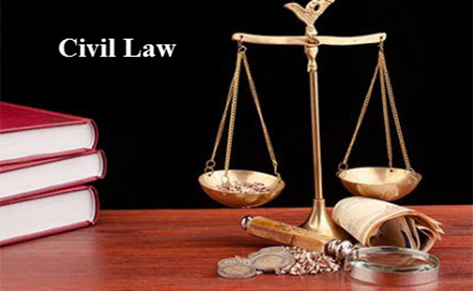MD Lutfur Rhaman
Friedrich Nietzsche rightly pointed out: "When we speak of the Greeks, we unwittingly speak to today and yesterday." From the beginning of the civilization, Greek's philosophers treated as a teacher of world philosophy. The legal conceptions of the early age of Greek known to us by the literature of Homer and Hesiod.
At that time, Law was regarded as issuing from God and known to us by divine explanations. Hesiod pointed out, Animals eat each other because they didn't know the Law: but Zeus gave law to mankind. Law and religion were undifferentiated in the early Greek period. Lawmaking and adjudication were an act of religious leaders and the king regarded as a representative of Gods. King's judgments were regarded as an ultimate judgment of Gods.
The first conflict between divine laws and man-made laws was codified in the Sophocles' tragedy Antigone where the supremacy of divine law prevailed. King Creon forbade the burial of Polyneikes because he had beached the law of the state. But his sister Antigone buried his brother according to Greek religion. When the king called her to account, she pleaded that in burying her brother she broke king's law, but not the unwritten law. It was the first example of differentiation of Law and divine will.
In the 5th century B.C., the legal thinking became divorced from religion and ancient Greek thinking subjected to criticism. Law regarded as a human intervention, not as an immutable command of the divine will. The idea of justice was introduced as a metaphysical from and analyzed human social interests. Protagoras was one of the famous earlier figures, who said man measure all things, not Gods. Later, Antiphone created a sharp line between nature and law. He said nature is very necessary and unchangeable and laws are casual and artificial arrangements which can change with circumstances. He further said that nobody can violate the laws of nature with immunity, but if anyone violates any state law he does not suffer any punishment or dishonor if such violation remains undetected.
Plato's View:
Plato's idea of justice was "a man should do his work in the station of life to which he was called by his capacities." According to him, every member of society has the specific duty and should do his duty. Plato was convinced by the class system in his ideal commonwealth. He divided the society into four parts i.e. Gold, Silver, iron, and copper.
The man who belongs to the gold class are rulers in Plato's ideal society. He must be the philosopher. According to Plato, without a philosopher king, the evil of society will no end. The man of gold has a specific duty and supreme powers but he should use it rationally and unselfishly for the good of the state and community. The man who belongs to the silver class is the soldier. His duty is to help the king to discharge the king's duties, protection state, and maintain the peace and security. First two class will not hold family and private properties. They devote their lives to the purpose of state welfare. The man of iron and copper will be the producing classes. They can hold family and private properties under the direct supervision of the state. By performing one's own duties can establish justice.
Plato did not believe the rule of law rather he believes in the rule of the philosopher king. He said if any conflict arises then it should be decided by judges but there should have a large amount of discretionary power to judges to decide the problem. According to him establishing actual justice can not possible by any law because the law can not ensure good for every man of the society. Hence, " the best thing of all is not full authority for laws but rather full authority for a man who understands the art of kingship and has wisdom."
Aristotle's view:
Aristotle avoiding the platonic idea of the rule of man rather he said: "the rule of law is perferable.... to that of a single citizen." According to him, man is the best of the animals, but if they isolated from law and justice they become worst of all. He insisted that if there have any man who has outstanding knowledge, virtue and political capacity then such man can be the permanent ruler and lawgiver but there must be a body of law.
He defined law as " reason free from all passion". Law must be base on reason, universal, rigid and must free from all personal passion. Aristotle also conscious about the universality and rigidity of legal rules which can raise hardship in a particular case. He insisted if such a hardship situation arise then it can solve on the basis of Equity. He defined equity as "a rectification of law where law is defective because of its generality." The law takes into consideration the common case but if any unique case arises when the law is unable to provide justice then the judge can depart from letter of the law and decide the case as the lawgiver himself would presumably have disposed of the matter had he foreseen the possibility of its occurrence.
Source: Bodenheimer, Edgar. "Jurisprudence: The philosophy and method of the law." (1962).
The writer is studying LL.M at South Asian University, India.

























